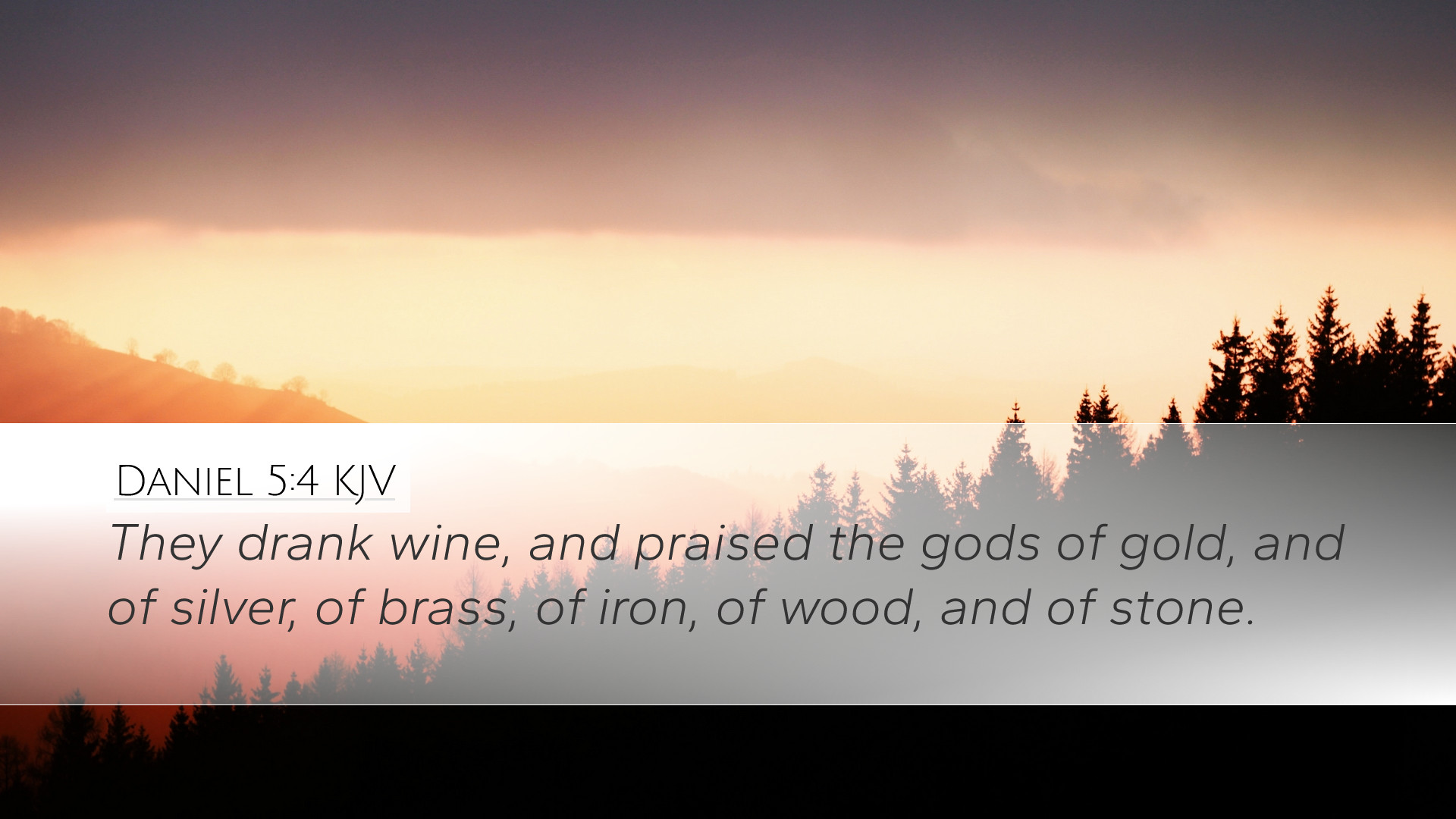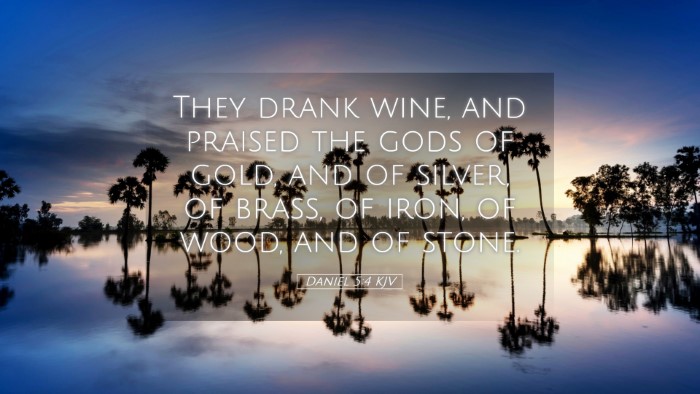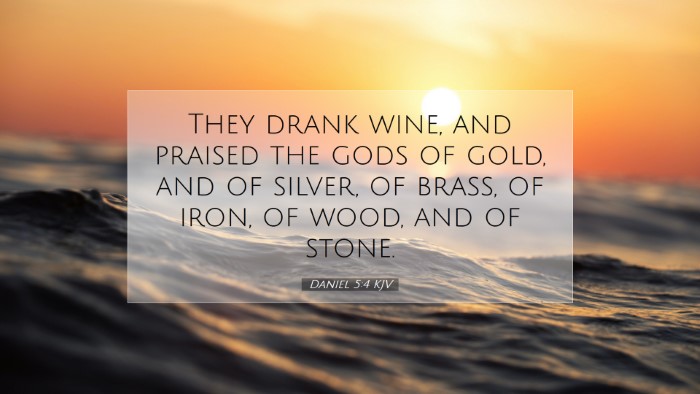Bible Commentary on Daniel 5:4
Verse (Daniel 5:4, KJV): "They drank wine, and praised the gods of gold, and of silver, of brass, of iron, of wood, and of stone."
Introduction
The fifth chapter of Daniel presents a critical moment in Babylonian history, marked by the feast of Belshazzar, which ultimately leads to divine judgment. The verse in focus highlights not only the secular indulgence of a world-power but also serves as a contrast to the holy reverence owed to the true God.
This commentary integrates insights from Matthew Henry, Albert Barnes, and Adam Clarke, focusing on the implications of this verse for theology and ethics.
Context of Daniel 5
Understanding the historical and cultural context of this chapter is essential. Belshazzar, the king mentioned in this passage, is considered to be the last ruler of Babylon during a time of moral and spiritual decay. This verse occurs during a great feast where excessive drinking and worship of idols took place. It represents a moment of hubris where earthly powers ignore the sovereignty of God.
- Spiritual Decline: The feast reflects a severe spiritual decline within Babylon that can be traced through its disregard for God.
- Idolatry: The praise of gods made of gold, silver, brass, iron, wood, and stone emphasizes the futility of worshipping created things rather than the Creator Himself.
- Divine Judgment: This event sets the stage for impending judgment, reinforcing the notion that God does not remain passive in the face of blasphemy.
Theological Insights
In this verse, several theological themes emerge that are critical for pastoral and scholarly reflection:
- The Nature of Idolatry: The verse serves as a commentary on human tendencies to replace the worship of the one true God with the worship of false idols. Matthew Henry remarks on how this tendency is not merely historical but present in contemporary society.
- God's Sovereignty: Despite the king's ceremony, God’s sovereignty prevails. Albert Barnes emphasizes that the very act of drinking wine and worshipping false gods places Belshazzar in direct opposition to God's will, illustrating the futility of human attempts to deify material wealth.
- Human Vanity: Adam Clarke points out that the act of worshipping crafted idols over the Almighty showcases the vanity of human pride, leading to a comprehensive moral and spiritual breakdown.
Historical Interpretation
Commentators have made significant historical observations regarding the figure of Belshazzar and the implications of his actions:
- Belshazzar's Identity: Historical records have provided insights into Belshazzar's dual role as crown prince and actual king. His actions are viewed as a culmination of Babylonian decadence. Both Barnes and Clarke discuss how his blasphemy against God reflects a cultural climate detached from divine reverence.
- The Feast as a Political Statement: The large feast can be seen as a political statement of confidence amid external threats. Henry notes that such defiance against God may have been a strategic attempt to consolidate power and distract from the impending fall of Babylon.
Moral and Ethical Lessons
The narrative in this verse serves as a profound ethical lesson for contemporary believers:
- Warning Against Complacency: The actions of Belshazzar serve as a strong warning against complacency in one's spiritual life. Both Henry and Barnes stress the importance of recognizing God's authority and remaining vigilant in faith.
- The Call to Repentance: Belshazzar's blasphemous celebration leads to a poignant reminder for modern followers of Christ to turn from their idolatrous trusts and pursue genuine repentance.
- Importance of Worship: This verse underscores the importance of true worship, centering on God alone, rather than the distractions posed by materialism and cultural influences.
Conclusion
Daniel 5:4 encapsulates a moment of historical significance, marked by idolatry and moral decay. By integrating the insights of renowned biblical commentators like Matthew Henry, Albert Barnes, and Adam Clarke, we uncover a rich tapestry of lessons regarding the nature of idol worship, human arrogance, and the absolute sovereignty of God over history. Pastors, students, theologians, and scholars are challenged through this commentary to reflect on their own commitments and to recognize the omnipresent need for reverence towards God in every aspect of life.


